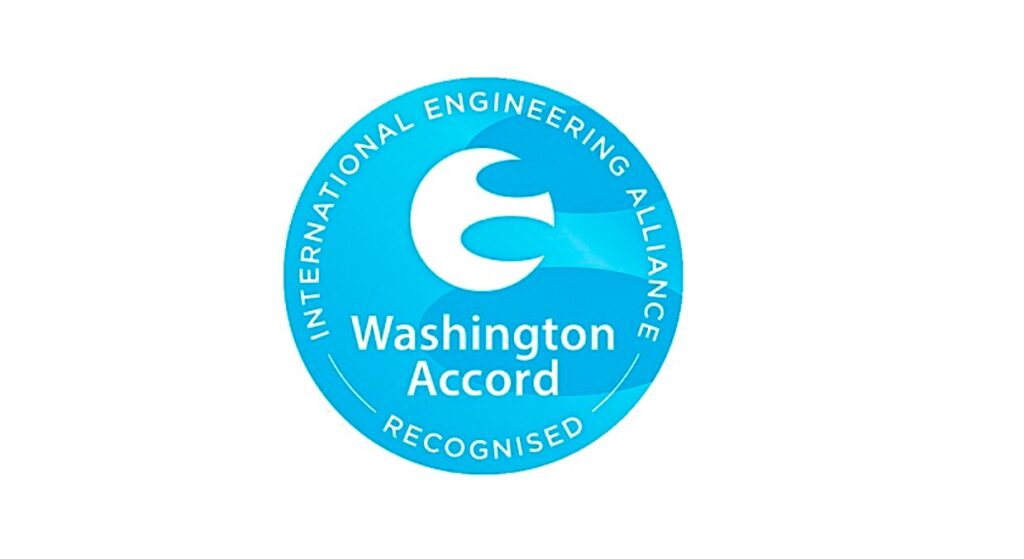Washington Accord
Pakistan has achieved a significant milestone by securing a permanent six-year membership in the Washington Accord, an esteemed international agreement for engineering education accreditation.
The decision was unanimously approved by the International Engineering Alliance (IEA) during its recent two-day session held in New Delhi.
The approval marks Pakistan’s continued commitment to meeting rigorous standards in engineering education, as recognized by global peers within the IEA.
Despite facing challenges with visa issuance and a No Objection Certificate (NOC) from the Indian government, which prevented a physical delegation from attending the session, Pakistani representatives successfully participated via online platforms.
Najeeb Haroon, Chairman of the Pakistan Engineering Council (PEC), expressed heartfelt congratulations to Pakistani engineers for this historic achievement.
He emphasized that Pakistan’s elevation to permanent membership status in the Washington Accord underscores the nation’s advancements and adherence to international benchmarks in engineering education.
During the IEA session, Pakistan received strong support from Hong Kong, China, and Turkey, underscoring solidarity among member nations in recognizing Pakistan’s educational standards and contributions to the engineering field.
Pakistan initially gained membership in the Washington Accord in 2017 and has since demonstrated consistent dedication to enhancing its engineering programs and aligning them with global best practices.
Moreover, Pakistan’s support was instrumental in facilitating the membership of other countries, including the Philippines and Bangladesh, during this year’s IEA session.
This collaborative effort highlights Pakistan’s role as a proactive participant in promoting quality engineering education globally and fostering regional cooperation in accreditation and professional standards.
The Washington Accord membership enables Pakistani engineering graduates to benefit from international recognition of their qualifications, enhancing their mobility and employability across member countries.
It also positions Pakistan’s engineering institutions to engage more effectively in global partnerships and collaborations, contributing to the country’s socio-economic development through innovation and technological advancement.
Moving forward, Pakistan remains committed to upholding the standards set forth by the Washington Accord, continuing its efforts to strengthen engineering education, research, and professional practice.
The achievement of permanent membership reflects not only recognition of past accomplishments but also sets a foundation for future growth and excellence in the engineering sector on a global scale.
I am a dynamic professional, specializing in Peace and Conflict Studies, Conflict Management and Resolution, and International Relations. My expertise is particularly focused on South Asian Conflicts and the intricacies of the Indian Ocean and Asia Pacific Politics. With my skills as a Content Writer, I serve as a bridge between academia and the public, translating complex global issues into accessible narratives. My passion for fostering understanding and cooperation on the national and international stage drives me to make meaningful contributions to peace and global discourse.








